Popular content
Browse all blogs

Your Story Series: Neil
"In my work we are constantly travelling around the world and often could be described as sun chasers as working on tour in golf, the tournaments have the better chance...
Your Story Series: Neil
"In my work we are constantly travelling around the world and often could be described as sun chasers as working on tour in golf, the tournaments have the better chance of completion without delay in warmer countries. I would say that when I am working, I am much more likely to be in the sun than I am on my down time."

We've got you covered with Baokim Bonelli
"Skin is your largest organ and often dermatologic changes can be the first signs of systemic disease."
We've got you covered with Baokim Bonelli
"Skin is your largest organ and often dermatologic changes can be the first signs of systemic disease."
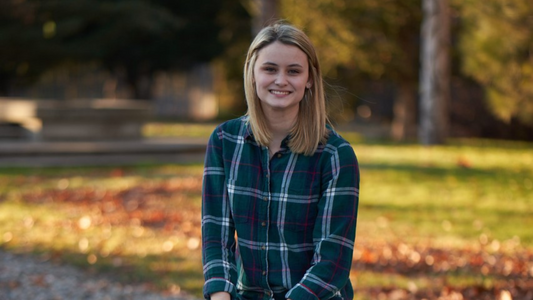
Your Story Series: Charlotte Hayes
"I have Erythropoietic Protoporphyria (EPP). EPP is due to an inherited deficiency of the enzyme ferrochelatase. Reduced activity of this enzyme causes a build-up of protoporphyrin in the skin resulting...
Your Story Series: Charlotte Hayes
"I have Erythropoietic Protoporphyria (EPP). EPP is due to an inherited deficiency of the enzyme ferrochelatase. Reduced activity of this enzyme causes a build-up of protoporphyrin in the skin resulting in photosensitivity."
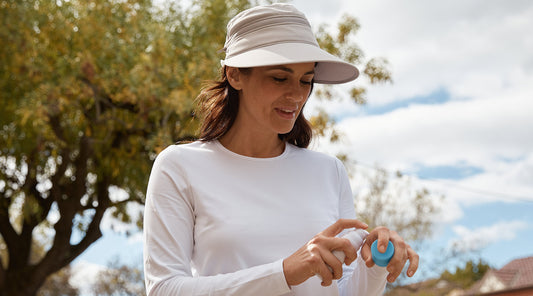
Wide brim sun hat or sunscreen: Which is better for sun protection?
Give yourself the best possible chance of avoiding a sunburn, premature skin ageing and being diagnosed with skin cancer.
Wide brim sun hat or sunscreen: Which is better for sun protection?
Give yourself the best possible chance of avoiding a sunburn, premature skin ageing and being diagnosed with skin cancer.

Jarryd Roughead Q&A: The Importance of Sun Protection
Australian rules football coach and former player Jarryd Roughead took the time to answer our questions about his experience with skin cancer.
Jarryd Roughead Q&A: The Importance of Sun Protection
Australian rules football coach and former player Jarryd Roughead took the time to answer our questions about his experience with skin cancer.

Tony Richardson shares his best skin health tips
"I love everything about Solbari, from the texture of the clothing to the protection it provides from harmful UV rays."
Tony Richardson shares his best skin health tips
"I love everything about Solbari, from the texture of the clothing to the protection it provides from harmful UV rays."

Skin Health Series: Nina's Story
I have systemic lupus erythematosus, SLE for short. UV rays trigger an autoimmune response that can affect a huge variety of things, to include vital organs such as the heart,...
Skin Health Series: Nina's Story
I have systemic lupus erythematosus, SLE for short. UV rays trigger an autoimmune response that can affect a huge variety of things, to include vital organs such as the heart, kidneys, lungs and brain, as well as skin. Externally you see a rash, known as a “butterfly” rash due to its shape, but the more dangerous issue from these flare-ups is internal organ damage caused by my body’s immune system thinking my own body is the enemy and attacking it. To help prevent flare-ups I have to take a variety of steps daily, and one of the most challenging things has been figuring out how to reduce UV exposure as much as humanly possible. It's harder than you think, too.
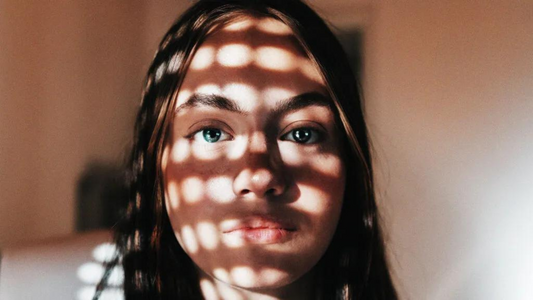
Skin Health Series: Hannah's Story
I have a rare skin condition called hydroa vacciaforme, which is a photosensitive condition triggered by the UVA and UVA rays of the sun. It makes my skin blister and boil, leaving...
Skin Health Series: Hannah's Story
I have a rare skin condition called hydroa vacciaforme, which is a photosensitive condition triggered by the UVA and UVA rays of the sun. It makes my skin blister and boil, leaving behind scars and thin areas of skin. I’ve had this condition for 17 years and in that time, unfortunately, I have found nothing that helps my skin long term. However UV sun protection clothing is helpful to protect my head and my hands!
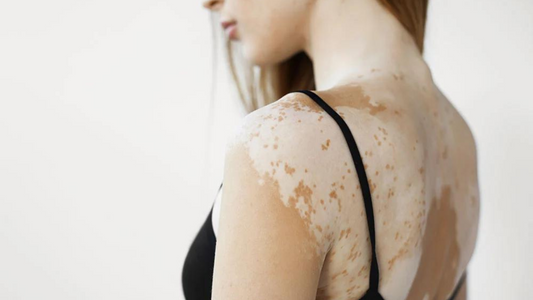
Skin Health Series: Philomena's Story
Having vitiligo means my skin is seriously sensitive to the sun, making my daily life very difficult to enjoy. I have to wear a high SPF 50+ sun protection cream all...
Skin Health Series: Philomena's Story
Having vitiligo means my skin is seriously sensitive to the sun, making my daily life very difficult to enjoy. I have to wear a high SPF 50+ sun protection cream all year round, but no matter what sun protection I use, my skin will burn after 5 minutes in the sun. Vitiligo is very hard to live with and it has stopped me from enjoying everyday life. I used to love the outdoors: walking, gardening, walking the dog and going to the beach.
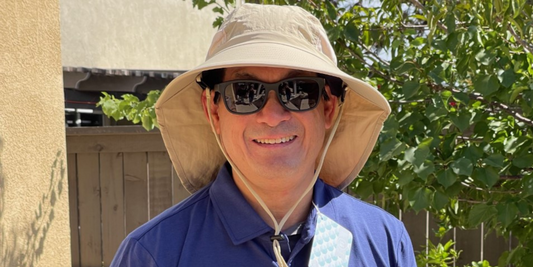
Your Story Series: Howard Chang
Howard has lived with severe psoriasis and eczema since childhood. He is an active National Psoriasis Foundation (NPF) member and was named the 2021 NPF Outstanding Volunteer of the Year...
Your Story Series: Howard Chang
Howard has lived with severe psoriasis and eczema since childhood. He is an active National Psoriasis Foundation (NPF) member and was named the 2021 NPF Outstanding Volunteer of the Year award winner. He serves as an NPF Western Advocacy Committee Co-Chair and on the 2022 Capitol Hill Day Committee. Howard has written his psoriasis column, The Itch to Beat Psoriasis, on Everyday Health since 2007 and was named one of the 2018 WEGO Health Top 10 Lifetime Achievement Patient Leaders. He has served on various patient panels and industry advisory groups, including Determi-Nation—a movement that addresses inequities in psoriatic disease among people of colour. Howard is the first patient advocate editorial board member for the journal Dermatology and Therapy. As an ordained minister, Howard has worked in churches and university settings since 1995 and holds a Doctor of Ministry degree from Fuller Theological Seminary. He grew up in the San Francisco Bay Area and now lives in the greater Sacramento, California area with his wife, with whom he has three adult children. 1. What skin condition do you have? I have severe plaque and guttate psoriasis, as well as atopic dermatitis (eczema). 2. When were you diagnosed? I was first diagnosed when I was about eight years old. My parents thought I had a rash that would go away on its own. When it didn’t, they took me to see my doctor, who then referred me to a dermatologist. Later, my psoriasis diagnosis was confirmed by the University of California, San Francisco dermatology department. 3. When/How did you first notice something was different with your skin? I started noticing rashes on my skin after sleeping in a new unwashed sleeping bag that had residual chemicals from manufacturing. Later, my psoriasis exploded everywhere on my skin when I had a strep throat infection accompanied by a high fever. 4. What is like living with psoriasis? I can’t remember a time when I didn’t have psoriasis as a significant part of my life. As a constant and chronic disease, its presence can be a source of frustration and hopelessness. It’s tiring to keep up with my skincare routines each morning and evening. Sometimes I just want to take a break from managing and thinking about my psoriasis. On the other hand, psoriasis has taught me valuable life lessons. I’m a more compassionate and accepting person having faced rejection, ostracism, and low self-esteem from having a visible, stigmatising condition. I understand what it’s like to endure through difficult and uncomfortable circumstances. As a result, I’ve dedicated my life to helping others, including those suffering from chronic illnesses like psoriasis. 5. What do you do to manage your symptoms? Are there certain triggers that make these symptoms worse? My primary treatment is a biologic medication that I inject every eight weeks. I started biologic therapy almost twenty years ago when the first ones were approved for psoriasis. I also use topical steroids, phototherapy (narrowband ultraviolet light), and moisturisers. Scalp psoriasis is particularly difficult to treat. There is a foam with a topical steroid that help keep my scalp inflammation under control. Stress is a major psoriasis trigger for me. When I am busy, feeling pressure, or in crisis mode, I notice my psoriasis will often worsen. Another trigger, insomnia, is related to stress. I don’t sleep well when my mind is focused on deadlines or anxious thoughts. The stress of psoriasis, especially itchy flares, can keep me up at night and exacerbate my psoriasis as well. I don’t drink alcohol as it’s a trigger for my psoriasis and eczema. Sunburn is another psoriasis trigger that I need to watch out for in the summer. 6. What, if anything, have you had to change about your lifestyle to manage your psoriasis? I’ve adjusted my lifestyle for psoriasis in a few ways. When I learned how psoriasis can be associated with other conditions such as cardiovascular (CV)disease and diabetes, I committed to regularly exercising (I enjoy jogging, walking, and biking) and watching my diet. I don’t eat a special psoriasis diet; rather, I try to eat a balanced diet that lowers my CV disease risk and keeps my weight in a good range. More recently, I’ve learned to slow down and rest. For years, I pushed myself at work and took on activities that kept me quite active. Now I recognise the importance of a healthy rhythm to life that incorporates periods of restoration and reflection. I’m better at listening to my body, especially when I’m battling a skin flare that needs extra attention. 7. What is a common misconception you’ve noticed about psoriasis? Psoriasis is contagious. As an immune-mediated condition, the source of inflammation is not something that can spread from contact with a person living with it. Psoriasis is just a rash. I’ve heard people tell me that it’s only a skin rash and to not make too much of it. But living with psoriasis has impacted my life profoundly including my mental health, relationships, energy levels, goals, and finances. What’s one thing you want people to know about living with psoriasis? Psoriasis is much more treatable than it was when I was first diagnosed. It’s amazing to see the advances in understanding the origins of psoriasis and how to effectively treat it over the past forty years. Find a dermatologist that is experienced in treating psoriasis and set treatment goals with them that make sense for you. 9. How do you feel about your skin today? I am at peace with my skin today. When I was a younger adult, I hated my skin and wanted to leap out of it. Psoriasis became my lifelong arch enemy that never went away. But with the help of my faith, family, and a bit of talk therapy, I’ve come to accept that psoriasis is a part of my life. I would be thrilled to have psoriasis gone, but if it’s going to stick around, I’m determined to do my best to manage it and move forward with my life. What would you say to others who are struggling to feel comfortable in their skin? Don’t give up! You are not alone. I’ve been 95% covered with psoriatic lesions feeling despondent and hopeless. I miraculously found out that a co-worker’s relative was a world renown dermatologist who treated the toughest psoriasis cases at a university health centre. That dermatologist helped me find a treatment that began to clear my skin and give me my life back. You never know where help is going to come from. You are not your skin. While I have psoriasis, and it’s an indelible part of my life, I am not my psoriasis. Don’t let psoriasis stop you from reaching your goals or living an active, full life. You can find out more about Solbari's sun protective range by clicking the links below:Women UPF 50+Men UPF 50+Sun hats UPF 50+Accessories UPF 50+ SPF 50+ Sunscreen
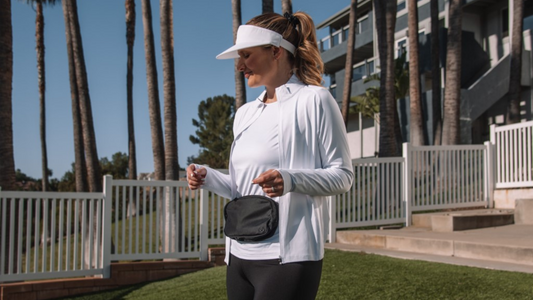
Your Story Series: Meet Jenna
"Sun protection from sunscreen and UPF clothing is an easy plan to implement to save yourself the pain of going through a skin cancer surgery. And if you want to...
Your Story Series: Meet Jenna
"Sun protection from sunscreen and UPF clothing is an easy plan to implement to save yourself the pain of going through a skin cancer surgery. And if you want to be tan, self-tanner is an amazing thing!"
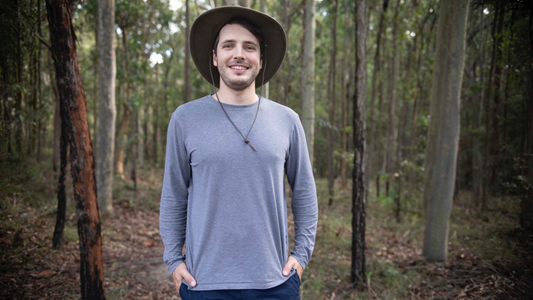
Your Story Series: Meet Andrew
I'm big advocate for sun safety, so I'm very proactive with looking after my skin. I'm always pushing my friends and family to be more sun safe, I think most know...
Your Story Series: Meet Andrew
I'm big advocate for sun safety, so I'm very proactive with looking after my skin. I'm always pushing my friends and family to be more sun safe, I think most know the effects of the sun, but not to the extent they should. Most don't seem to understand the UV index, and how quickly you can get burnt in the middle of the day. There's still a long way to go for sun safety education!

Your Story Series: Meet Tammy
My attitude towards sun protection may seem fanatical to some. In London, I am outdoors every day in all sorts of weather to exercise my horse and my dog. I...
Your Story Series: Meet Tammy
My attitude towards sun protection may seem fanatical to some. In London, I am outdoors every day in all sorts of weather to exercise my horse and my dog. I wear long-sleeved clothing no matter the season, I cover my face with a hat and a balaclava when horse-back riding.

Your Story Series: Josh
Josh Murrell was just 21 years old when he was first diagnosed with stage three melanoma. Though luckily malignant, the seemingly innocuous spot on the back of his leg was...
Your Story Series: Josh
Josh Murrell was just 21 years old when he was first diagnosed with stage three melanoma. Though luckily malignant, the seemingly innocuous spot on the back of his leg was not his last encounter with skin cancer.

Your Story Series: Meet Katharine
This summer 2018, my mother, sister, and I went to our dermatologist for full body skin checks. It had been over a year since we had been and my mom...
Your Story Series: Meet Katharine
This summer 2018, my mother, sister, and I went to our dermatologist for full body skin checks. It had been over a year since we had been and my mom thought it would be a good idea for all of us to get an exam. None of us had any particular spots we were concerned about or thought looked abnormal. The doctor, however, found a mole on my lower calf that she thought looked just a little different than the rest. She biopsied it and it came back as melanoma in situ — the earliest and most curable form of melanoma.









